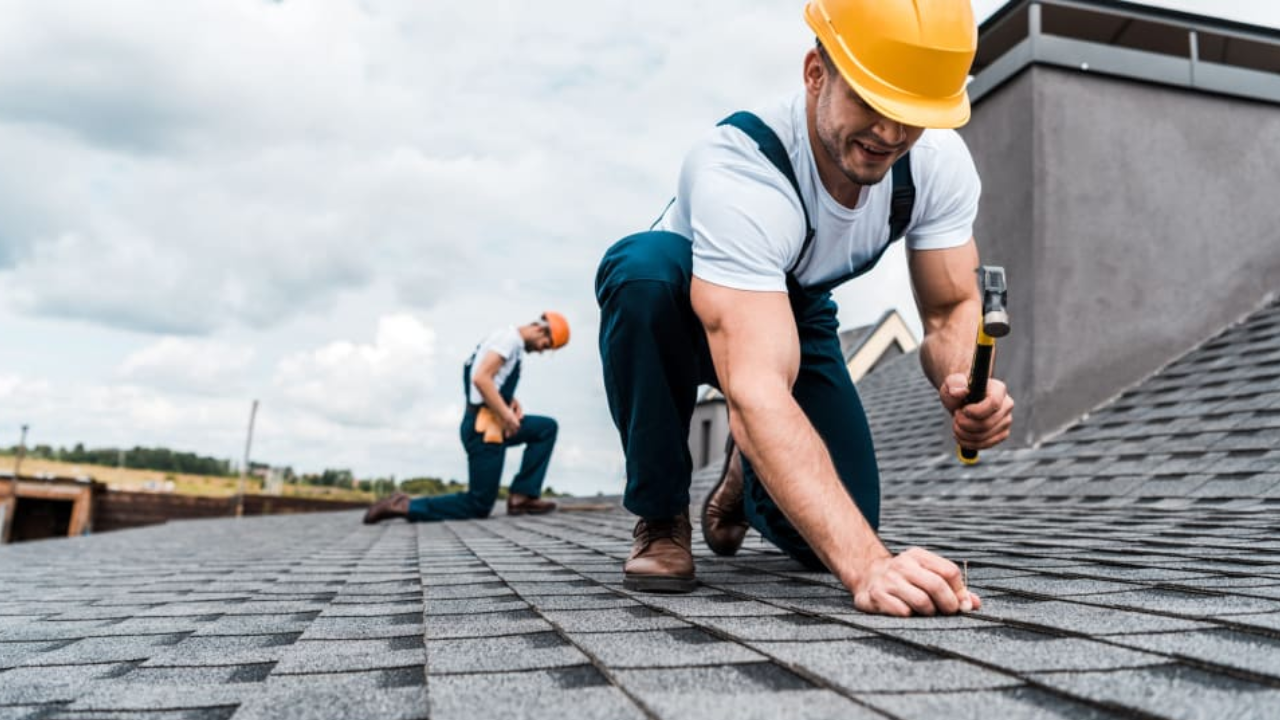Selecting a roofing contractor is one of the most significant decisions homeowners face when maintaining or improving their property. A new roof represents a substantial investment, with the average homeowner spending between $5,000 and $10,000 depending on materials and home size.
Finding a reliable roofing contractor who delivers quality installation at a fair price requires careful research and consideration of multiple factors including licensing, insurance, and reputation. When homeowners rush this decision, they often face substandard workmanship that leads to leaks, premature deterioration, and costly repairs down the road.
Roof repair and replacement projects demand professional expertise to ensure proper installation and long-lasting results. Homeowners should evaluate multiple contractors, review their portfolios, and check references before making a final selection. This methodical approach helps secure a contractor who will complete the work correctly the first time, providing protection and peace of mind for years to come.
Evaluating Roofing Contractors
Finding the right roofing contractor requires thorough evaluation of their credentials, insurance coverage, and quality of materials and workmanship. Taking time to properly assess these factors can save you from future headaches and ensure your roof is installed correctly.
Assessing Contractor Credentials
A legitimate roofing contractor should possess a valid state license that permits them to operate in your area. Always verify this license through your state’s licensing board before proceeding with any agreements.
The contractor should have substantial experience in installing your specific roofing system. Ask how many similar projects they’ve completed in the last year.
Check their standing with the Better Business Bureau and read online reviews from previous customers. A reputable contractor will maintain at least a B rating or higher.
Request at least three references from recent clients and contact them to inquire about their experience. Ask specific questions about timeliness, cleanliness, and how well the contractor handled unexpected issues.
Communication style is a crucial indicator of professionalism. Contractors who respond promptly to inquiries and explain technical details clearly typically demonstrate the same attentiveness throughout the project.
Understanding Insurance and Warranty
Reputable roofing contractors carry two essential types of insurance: liability insurance to protect your property and workers’ compensation to cover any on-site injuries. Request certificates directly from their insurance company.
Contractors should be knowledgeable about navigating insurance claims if your roof replacement is due to storm damage. They should be willing to work with your insurance adjuster but never pressure you to file a claim.
The workmanship warranty is separate from manufacturers’ materials warranty. Quality contractors offer workmanship warranties of at least 5-10 years, demonstrating confidence in their installation.
Get all warranty options in writing with clear explanations of what is covered. Be wary of contractors offering unusually long warranties without substantiating documentation.
A detailed written contract should specify how warranty claims are processed and the expected response time for repairs. This protects you from contractors who might disappear after completing the job.
Quality of Work and Materials
Superior contractors use high-quality roofing materials from reputable manufacturers. They should offer multiple options for shingles or other roofing materials with detailed explanations of performance differences.
Ask to see samples of materials they plan to use. Quality contractors will gladly demonstrate the features of different shingles or materials and explain why certain options might work better for your specific situation.
Proper installation techniques are as important as material quality. Request information about their installation processes, including ventilation solutions and underlayment materials.
Examine photos of their previous work to assess craftsmanship. Look for clean, straight lines and attention to detail around chimneys, vents, and other roof penetrations.
Quality workmanship includes appropriate cleanup procedures. The contract should specify how they’ll protect your landscaping and remove all debris when the project is completed.
Planning Your Roofing Project
A successful roofing project requires careful planning before the first shingle is removed. Proper preparation helps avoid unexpected costs, ensures compliance with local regulations, and establishes clear expectations with your contractor.
Choosing Materials and Understanding Costs
Selecting appropriate roofing materials is critical to the longevity and performance of your roof. Asphalt shingles remain popular due to their cost-effectiveness and 20-30 year lifespan, while metal roofing offers durability for 50+ years at a higher initial investment.
Common Roofing Materials:
- Asphalt shingles: $3-$5 per square foot
- Metal roofing: $10-$14 per square foot
- Slate: $15-$30 per square foot
- Clay tile: $10-$18 per square foot
Be wary of unusually low bids, as they often indicate substandard materials or workmanship. Quality contractors will provide detailed estimates that account for potential hidden issues like underlying rot or damaged decking.
Material costs typically represent about 40% of the total project budget, with labor making up most of the remainder. Seasonal timing can affect pricing—many roofing companies offer discounts during slower periods.
Navigating Building Codes and Regulations
Local building codes specify requirements for roof construction, materials, and installation methods. These regulations ensure structural integrity and safety, particularly in areas prone to severe weather.
Most municipalities require permits for roofing projects that involve structural changes or complete tear-offs. Reputable contractors will handle the permit process as part of their service.
In regions with extreme weather conditions, special considerations apply. Hurricane-prone areas may require wind-resistant shingles and reinforced flashing techniques. Similarly, fire-resistant materials might be mandatory in wildfire-vulnerable locations.
Insurance requirements should also factor into planning. Many homeowners’ policies offer discounts for impact-resistant roofing in hail-prone regions. When replacing a roof due to storm damage, documentation of the damage is essential for insurance claims.
Finalizing the Agreement
A comprehensive written contract protects both homeowner and contractor. This document should detail project scope, materials, timeline, payment schedule, and warranty information.
Essential contract elements include:
- Complete material specifications
- Start and completion dates
- Payment terms and schedule
- Cleanup procedures
- Workmanship warranty details
- Manufacturer’s material warranty
Payment schedules typically involve an initial deposit (20-30%), progress payments, and final payment upon satisfactory completion. Never pay the full amount upfront.
Clear communication throughout the project prevents misunderstandings. Establish a primary contact at the roofing company and preferred communication methods before work begins. The contract should also address protocols for handling unexpected issues that may arise during the project.



